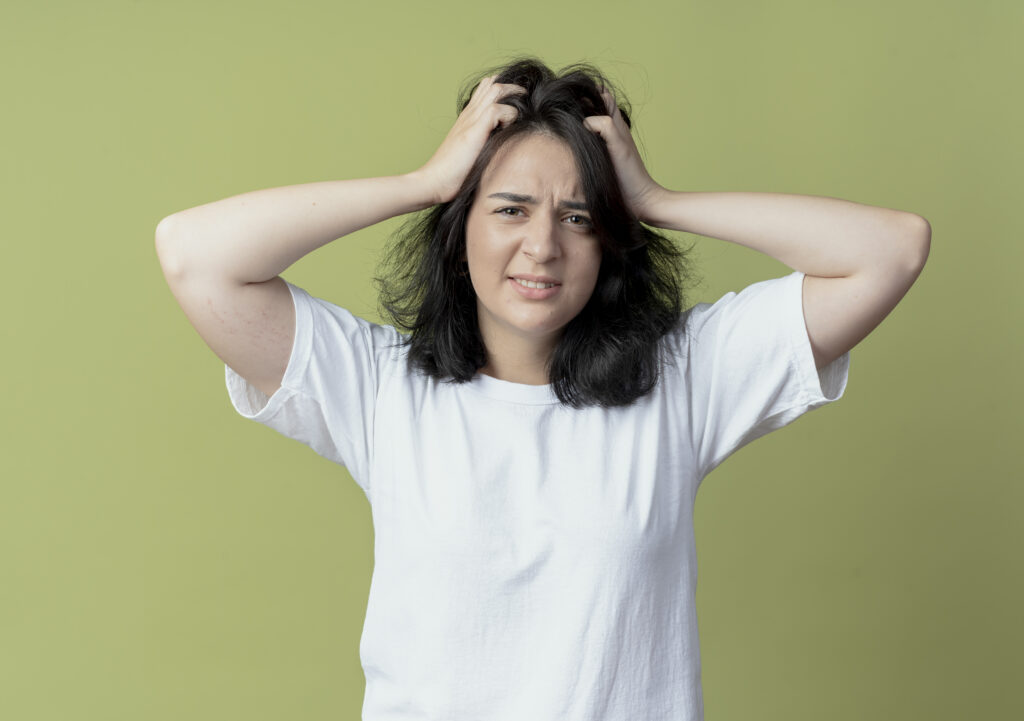
An itchy scalp can be a persistent annoyance, disrupting our daily lives and often signaling an underlying issue. In this comprehensive exploration, we will delve deep into the myriad causes of an itchy scalp, shedding light on the factors that contribute to this common hair and scalp concern. Understanding the complexities of the scalp’s structure and function is essential to pinpointing the root causes of itching.
- The Scalp Ecosystem: The scalp is a remarkable ecosystem, housing hair follicles, sebaceous glands, and a delicate balance of oils and microbes. Disruptions in this balance can lead to various scalp issues, with itching being a common symptom.
- Dry Scalp vs. Dandruff: Dryness is a frequent culprit behind scalp itchiness. When the scalp lacks moisture, it can become dry and flaky, leading to irritation. It’s important to distinguish between dry scalp and dandruff, as they have different causes and require specific treatments. Dry scalp is often a result of environmental factors, while dandruff is associated with an overgrowth of yeast on the scalp.
- Dandruff and Seborrheic Dermatitis: Dandruff, characterized by white flakes, is often a consequence of the yeast-like fungus Malassezia. This overgrowth can trigger an inflammatory response, causing itching. Seborrheic dermatitis, a more severe form of dandruff, involves redness, greasy scales, and persistent itching, often extending beyond the hairline.
- Contact Dermatitis: The scalp can react to allergens in hair care products, shampoos, or even environmental factors, leading to contact dermatitis. Identifying and eliminating the allergen is crucial for resolving this type of itching, which may range from mild irritation to more severe reactions.
- Psoriasis and Eczema: Chronic skin conditions like psoriasis and eczema can extend to the scalp, causing itching, redness, and the formation of scales. Understanding the nature of these conditions is vital for effective management, often requiring specialized treatments and ongoing care.
- Fungal Infections: Fungal infections, such as ringworm, can affect the scalp, causing itching and discomfort. Recognizing the signs of a fungal infection, including red patches and hair loss, is crucial for seeking prompt treatment and preventing its spread.
- Over washing and under washing: The frequency of hair washing plays a significant role in scalp health. Both excessive washing and infrequent washing can contribute to scalp issues. Striking a balance that suits your hair type, lifestyle, and environmental conditions is crucial for maintaining a healthy scalp.
- Hormonal Changes: Hormonal fluctuations, such as those occurring during pregnancy, menopause, or hormonal disorders, can impact the scalp and lead to itching. Understanding the intricate connection between hormones and scalp health is essential for targeted solutions, which may include adjusting hair care routines or seeking medical advice.
- Stress and Lifestyle Factors: Stress, lack of sleep, and poor lifestyle choices can manifest on the scalp, contributing to itchiness. The scalp is sensitive to changes in the body’s overall well-being, making stress management and a healthy lifestyle important components of scalp care.
- Professional Guidance and Treatment Options: When itching persists, seeking professional evaluation is crucial. Dermatologists and trichologists can identify the specific cause of scalp issues and recommend appropriate treatments. These may range from medicated shampoos to prescription medications, depending on the severity and nature of the condition.
Conclusion:
An itchy scalp is a common concern, but its causes are diverse and often multifaceted. By scratching beneath the surface and understanding the underlying factors, individuals can take proactive steps to address and alleviate scalp itching. From establishing proper hair care routines to seeking professional advice when needed, a holistic approach to scalp health is crucial for achieving long-term relief and maintaining a comfortable and itch-free head. As we navigate the complexities of the scalp ecosystem, a comprehensive understanding of the causes of an itchy scalp empowers individuals to make informed decisions and embrace a healthier, more comfortable scalp.

